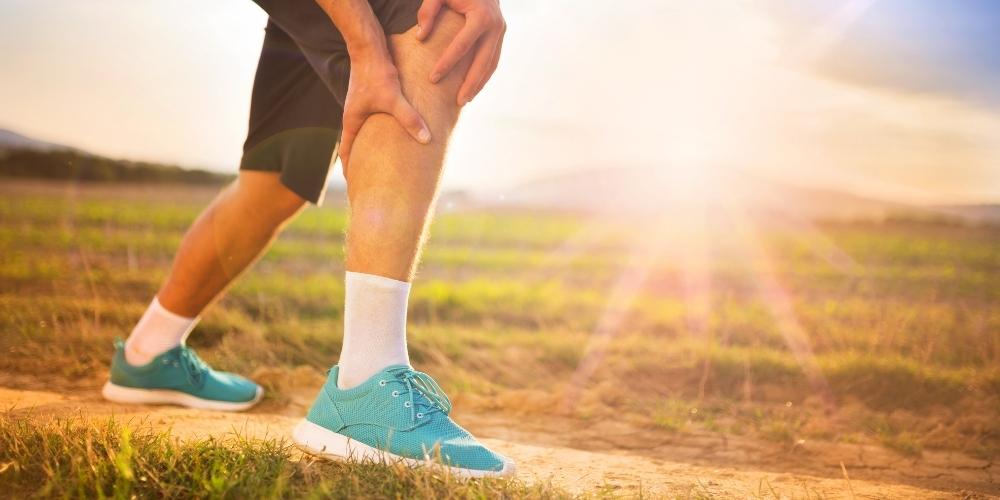
How Shoes Can Impact Your Knee Pain
Dec 20 , 2021
Tags - Knee Pain and Shoes
Regardless of how active you are, everyone is in danger of experiencing knee pain because of the shoes you wear.
Unfortunately, wearing the wrong pair of shoes will not only affect your feet and knees, but can have an impact on your overall health as well.
As a quick overview, the knee is a very large and complicated part of the body’s anatomy; the thigh bone, shin bone and knee cap all come together in one place.
So, it comes as no surprise that the knee joint requires a lot of support in order to function properly.
And, most of this support comes from your feet and the shoes you wear; wearing the appropriate shoes can prevent pain, and is one of the most important elements in managing more serious knee problems like osteoarthritis.
To put it differently, your feet and knees work together as a functional unit with a shared responsibility of supporting your body weight and providing balance as you move your body.
In addition, the knees will absorb some of the shock and impact every time you take a step, so these joints and bones must be properly aligned to evenly distribute the pressure placed upon them and stay pain free.
Consequently, if there are any abnormal changes in your foot’s biomechanics it will affect knee alignment.
For example, if your feet roll inwards, this changes the alignment in your lower leg and thus places additional and uneven pressure on your knee.
That said, the shoes you wear will have a significant impact on the positioning and movement of your feet and by extension, on your knee.
Impact of Shoes on Your Knees
Shoes need to fit your feet perfectly and provide adequate support to allow them to move naturally and maintain normal leg and knee alignment.
Here are a few different shoes that can affect your knees and cause pain:
1. High Heels
When you wear high heels, your body posture is changed significantly, and this increases the amount of weight placed on your knees.
Simply, wearing heels will shift your center of gravity and place more force on the knee joint.
Not to mention, these shoes force you to walk with a flexed knee and this will have an impact on your gait.
For this reason, knee osteoarthritis is much more common in women than men, as they are more likely to wear high heels.
2. Flat Shoes
Shoes that are too flat do not provide any, or enough, arch support and can lead to overstretching of the tendons along the bottom of your feet.
However, proper arch support is essential for absorbing shock and distributing pressure to your feet, legs and knees that can help to prevent injury and pain.
Essentially, an arch that is too flat or too high results in uneven distribution and as a result, places strain on your knees.
3. Flip Flops
We all love a pair of flip flops, especially in the summer.
But, these shoes could be contributing to your knee pain, because they cause a shortening of the gait, which turns down comfortable movement.
Now, we’re not saying you should ditch the flip flops altogether, but it would be a good idea to find a pair with more structure that can provide better support.
In other words, avoid wearing flip flops that are worn out or too flimsy, and when you do wear them, stretch your feet and legs every so often to relieve your knees of any pressure.
How to Find Shoes that Ease Knee Pain
Now that you know what shoes to avoid, here are 4 things to consider when finding shoes to avoid knee pain.
1. Cushioning
Shoes that are well-cushioned will help to absorb the impact of the foot hitting the ground, which prevents most of the shock from getting to the knees.
2. Soles
Firm midsoles will help to reduce overpronation, which in turn will reduce any added knee strain and pain.
3. Athletic Shoes
Footwear designed for sports and athletics are designed with motion control and stability features to control inward rotation of the foot and therefore the knees; firm midsoles help to keep the foot in the correct position when walking.
4. Custom Inserts
Custom shoe orthotics can help to ease knee pain as they provide extra cushioning in the shoes.
So, if there’s a pair of shoes you really love and have to buy, consider buying orthotics or visiting a podiatrist to get some custom made specially for your feet.
The Bottom Line
To conclude, the shoes you wear need to cushion the soles of your feet, support proper alignment and provide enough arch support.
Not to mention, they need to be comfortable, fit well and have a toe box that doesn’t squish your toes together.
Overall, if you treat your feet right, your knees will benefit too; proper footwear will help you go about your usual daily activities and lessen knee pain.
If you’d like to know more, please get in touch today.
In the meantime, take a look at our full range of comfortable shoes here.
You may also like:
